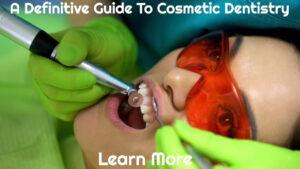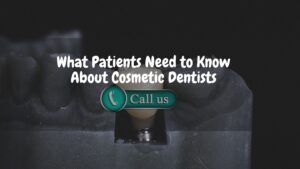FAQs About Invisalign – How It Works
Choosing to fix dental alignment might be a difficult decision. When making such an important decision, there is a lot to think about. There are numerous treatment options available on the market. Traditional braces have been available for decades, but alternatives such as Invisalign aligners have lately reached the market and are revolutionising orthodontic treatment. Many individuals are curious about how Invisalign works. Do you want a straightforward alternative to cumbersome braces? Is there a simpler way?
What is Invisalign?
Invisalign is a treatment option that is different from traditional braces. It was invented in 1998 by Align Technology and has been a huge success ever since. Invisalign uses a transparent retainer to gradually straighten teeth. Treatments are less intrusive than standard treatments. Furthermore, because they are a clear, tight-fitting retainer, they are more subtle. Many people do not even know that they are using transparent aligners! Clear aligner users must replace them every few weeks. The small modifications in these retainers guide your teeth into the ideal position over time. They are worn for 20-22 hours a day and can be removed to eat and clean your teeth.
What Types of Issues Can Invisalign Correct?
Crooked or crowded teeth are the most common problem that Invisalign corrects. Invisalign can also be used to correct mild to severe biting problems including overbite, underbite, and open bite. Some circumstances, however, are less amenable to success with Invisalign and necessitate a more traditional approach. Discuss your concerns with your doctor to discover if Invisalign is a good fit for your personal needs. Understand that Invisalign cannot address severe biting issues on its own.
What is Involved with Wearing Invisalign Aligners?
Invisalign aligners can be removed by anyone, unlike traditional braces, which must be worn continuously and cannot be removed. The ability to remove implies that individuals can remove the aligners to eat, brush their teeth, or at other times when it is more convenient to do so. The retainers apply gentle pressure to the teeth. Wearing them as much as possible (20-22 hours a day minimum) will ensure that your treatment is successful. Every few weeks, you will replace your retainer with one that is closer to your ideal smile. Your grin develops to its full potential over time.
How Effective are Invisalign Aligners?
When worn as directed, Invisalign aligners are just as effective as traditional braces. Although the results can be permanent, any operation that changes alignment frequently necessitates the use of a retainer that must be worn nightly for the rest of one’s life. Invisalign aligners, according to some studies, are more effective than other types of clear aligners.
What is the Difference Between Invisalign and Braces?
 There are a few distinctions between Invisalign and braces. Clear aligners are removable, clear retainers. Braces, on the other hand, are made up of metal brackets that are affixed to your teeth and use wires to force your smile into alignment. Invisalign users should expect a shorter treatment time—typically six to 18 months—as opposed to two or more years for braces. In general, the costs of both solutions are comparable.
There are a few distinctions between Invisalign and braces. Clear aligners are removable, clear retainers. Braces, on the other hand, are made up of metal brackets that are affixed to your teeth and use wires to force your smile into alignment. Invisalign users should expect a shorter treatment time—typically six to 18 months—as opposed to two or more years for braces. In general, the costs of both solutions are comparable.
For Who is Invisalign Suitable?
Orthodontists recommend Invisalign for patients who have crowding or misalignment. Orthodontists can also help with minor to moderate biting problems. Individuals looking for discretion, who are self-disciplined enough to wear the retainers consistently, and who are willing to have their smiles changed for goodwill find this a great option. Teens are good candidates for Invisalign since their permanent teeth have all grown in yet their teeth are still easily moved.
What is the Invisalign Process?
Invisalign employs technology to build a personalised treatment plan for your individual teeth. Manufacturers will create a series of retainers after the initial intake. Your orthodontist will advise you on how frequently to exchange retainers, but most orthodontists change them every one to two weeks. Throughout your treatment, the orthodontist will keep track of your progress. The aligners will then be removed so that you can eat, drink, brush and floss your teeth, and clean the retainers. You must wear a transparent aligner to bed at the end of your therapy. Many people will need to use them for the rest of their life to keep their teeth properly aligned.
How to Clean Aligners?
Throughout treatment, it is critical to take appropriate care of your aligners. Cool water can be used to clean them. Hot or warm water may deform them and cause them to deteriorate. Brush your retainers gently with a fine bristle brush. It is not advisable to use toothpaste or other abrasive items. To clean dental appliances, use a neutral soap or paste. Anyone can buy various kits, which include everything needed to maintain them fresh every day.
Congratulations on your decision to have your teeth realigned. It’s a good feeling to be confident in your smile. As you begin your road to a straighter smile, ask your orthodontist any further questions you may have.
Brought To You By: https://www.starbritedentalrockville.com/invisalign-rockville-md
The post Everything You Need To Know About Invisalign Aligners appeared first on https://arquiaca.org
The post Everything You Need To Know About Invisalign Aligners appeared first on https://wookicentral.com
The post Everything You Need To Know About Invisalign Aligners appeared first on https://gqcentral.co.uk




Comments are closed